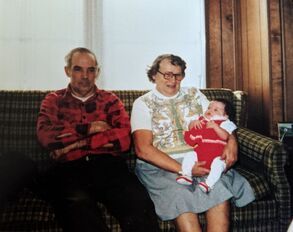Amanda M. Lyons's Blog: Inner Voices, page 2
April 12, 2021
Review: Josh Malerman's Goblin
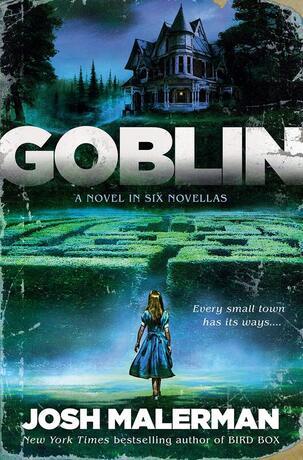 When we enter Goblin we feel as if we're walking into something we know, maybe a fog banked small town that's only really creepy at night or a ghost town that hasn't quite died enough to be itself yet, but we're soon made aware of how wrong we are, the familiar edges slipping away and revealing something more like a monolith on a cold and forsaken hill in the middle of the woods that just happens to look like a town if we look at it from just the right angle. Goblin is a place with many variables and many, many moving parts. Just when you think you've figured it out another story begins, and with it, a new facet of the broader story of the town (and the terrible land it was before that town came to exist) reveals itself. It wouldn't be an exaggeration to say that Goblin is also a character, but one that lurks in the wider edges of the camera, the ones that we just perceive beyond the shoulders of the characters experiencing its energy. There's a lot to unpack from the stories themselves, but it's clear the point was always that we find ourselves haunted by the town itself by the end, having taken on its weight without even realizing it.
When we enter Goblin we feel as if we're walking into something we know, maybe a fog banked small town that's only really creepy at night or a ghost town that hasn't quite died enough to be itself yet, but we're soon made aware of how wrong we are, the familiar edges slipping away and revealing something more like a monolith on a cold and forsaken hill in the middle of the woods that just happens to look like a town if we look at it from just the right angle. Goblin is a place with many variables and many, many moving parts. Just when you think you've figured it out another story begins, and with it, a new facet of the broader story of the town (and the terrible land it was before that town came to exist) reveals itself. It wouldn't be an exaggeration to say that Goblin is also a character, but one that lurks in the wider edges of the camera, the ones that we just perceive beyond the shoulders of the characters experiencing its energy. There's a lot to unpack from the stories themselves, but it's clear the point was always that we find ourselves haunted by the town itself by the end, having taken on its weight without even realizing it. This is my first book from Malerman and I genuinely enjoyed the classic horror atmosphere, original narrative, and interesting characters. While it is made up of some conventional parts, or at least things that horror fans are familiar with, I absolutely wouldn't call Goblin a typical novel at all, and that's not just because it's a story made up of several smaller stories. I would go into each of the stories in turn here but I think that the actual experience of reading the book is just too good to spoil by laying every bit of it out and picking it apart in front of you. Instead, I"ll just express that Goblin is every bit its own city with its own legends and existing experiences, I really enjoyed reading each of the stories even when there were parts that left me feeling a little sad or conflicted, and that says a lot in itself. After all, how many authors manage to write something that allows you to feel those emotions and still find yourself genuinely glad to have experience them?
Published on April 12, 2021 07:40
April 2, 2021
Review for Boneset and Feathers by Gwendolyn Kiste
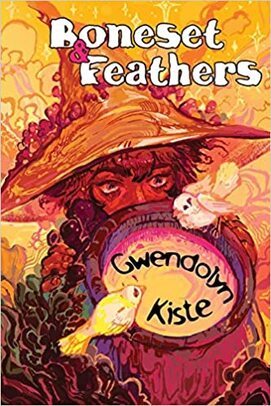 Boneset and Feathers is a beautifully written novel that I can genuinely say grabbed me from the first word. Set in a world where witches have come to resign themselves to a series of genocidal attacks from horrifically relentless witchfinders, it's also the story of a small village set just outside the central nexus of the witchfinders efforts, and with it, the story of a family destroyed by its own problems and the massacre of witches which have centered these horrors on the life of our main character, Odette. Odette, you see, is the witch who lived. After the witch-burning that took the lives of her family, she is also a figure with immense personal conflict and self-doubt, living in isolation in the woods and rarely ever coming into the village, even if she needs supplies. The villagers fear her, you see, and blame her for the things that befell their village and its surviving citizens. It doesn't help that on the one day that she truly must come into the village the birds have begun to fall from the sky, an omen of things to come.
Boneset and Feathers is a beautifully written novel that I can genuinely say grabbed me from the first word. Set in a world where witches have come to resign themselves to a series of genocidal attacks from horrifically relentless witchfinders, it's also the story of a small village set just outside the central nexus of the witchfinders efforts, and with it, the story of a family destroyed by its own problems and the massacre of witches which have centered these horrors on the life of our main character, Odette. Odette, you see, is the witch who lived. After the witch-burning that took the lives of her family, she is also a figure with immense personal conflict and self-doubt, living in isolation in the woods and rarely ever coming into the village, even if she needs supplies. The villagers fear her, you see, and blame her for the things that befell their village and its surviving citizens. It doesn't help that on the one day that she truly must come into the village the birds have begun to fall from the sky, an omen of things to come.Boneset and Feathers is a narrative I truly want you to step into and experience for yourself, in many ways I already worry I've said too much. Odette is a powerful voice expressing terrible things and I love what Gwendolyne Kiste has done with her story here, there are no wasted words or unexpressed experiences, you will genuinely want for nothing with her book and I sincerely hope you'll understand how much of a gift that actually is. Whether you're seeking a gothic novel, a book about witches and magic, or a narrative about perceived evil vs genuine evil this will absolutely satisfy, particularly if you want a novel that isn't overlong or too light on story. This is my first read from Kiste and I have already purchased some more of her work on the basis of this book.
I was fortunate enough to been chosen to get a copy of this book for review through NetGalley.
Published on April 02, 2021 08:33
September 13, 2020
First Some Silliness and Then a Bit of Realism
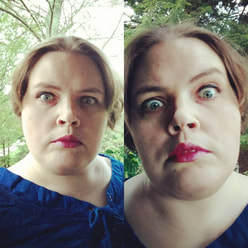
There, have a giggle, I certainly did!
First of all, thanks for your continued patience and understanding over the last year or so that I've been working at both rebranding my work as an indie and coping with the loss of my mother. Neither of these things was easy and I know it meant a lot of quiet from me, but we're all still here and things are continuing in realistic timing. Certainly much more realistic timing than I put myself under the pressure to create in the past. Trauma induced workaholism be gone!
You have my unending gratitude for everything, as always, and hopefully we'll be celebrating the release of Night is Falling sometime in the next year. I'm currently roughly halfway into the first draft and I feel really good about how it all feels. You all know that Gothic horror is my thing in most of my stories and novels, and this one is no exception, although its a bit unusual that it's become something of an Appalachian Gothic tale. Think of something like a blend of both my usual dark mood and a sort of isolationist story about rural poor folks who are honestly very like my kin in real life. Night is Falling is always changing and evolving as I go, but I'm very confident that it's central themes will remain at the end of the writing process.
A narrative about the importance of every life, the value and spirit in each of us, and the way in which many of us are senselessly forgotten, Night is Falling is horror, atmospheric, and a bit of an homage to the people who came before me and what mattered to them. That means this is a book in which everything has a story and every person has their own pieces to share, many of these pieces aren't forgotten by the people who make up the tiny place in rural Ohio but as in real life, are all too often treated like useless and meaningless facets of what it is to be human. I want you to care about everyone here and I want to see you get swept up in everything that happens. Like Bobby Gene himself, i can only tell you the story as I see it and hope that you understand why I wrote it to begin with. I'd like to think this is going to be fresh ground for me, it already is, but I think this will be a smoother and more natural place to work than I had in the past, something more like home.
Published on September 13, 2020 16:02
June 24, 2020
Interview with Jeremy Tuman, Author of Stereo Killer
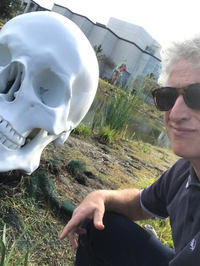
Jeremy Tuman lives in New Orleans, where he teaches English at Xavier University of Louisiana and plays in the rock 'n' roll band The Great Twenty-Eights. STEREO KILLER is his first novel.
https://www.goodreads.com/author/show...
https://www.amazon.com/Stereo-Killer-Jeremy-Tuman-ebook/dp/B07WW369M6/ref=tmm_kin_swatch_0?_encoding=UTF8&qid=1590794889&sr=8-1
Stereo Killer is the story of Chet, a former punk facing his middle ages with some reluctance. Can you tell us a bit about Chet and his process in the book?
Chet is a character who makes decisions based on immediate needs and immediate gratification, the way I think a lot of us do, but it's also a way that is socially discouraged as short-sighted, irresponsible, immature. This way of decision making is also seen as indicative of an aimless, wandering sort of life. While I think there's some truth in those perceptions, and we certainly can't make our way through by only addressing our immediate needs, I also think there's something very basically human in those instincts, and many times following them is exactly what's needed to maintain our sanity and give us some clarity in a messy and overstimulating society. Of course, punk rock is known as an immature genre of music that codifies resistance to social norms, including responsible decision making. So a decision to re-invest in punk rock as a middle-aged adult is an especially ripe decision for second guessing by responsible society. But even though punk rock has the visual and aural markers of prolonged immaturity, you don't need to look hard to see many other examples of this immediate gratification seeking that have been elevated to respectability, even desirability, such as consumerist fetishization, the "luxury" lifestyle, sports hero and celebrity worship. In a way punk rock stands against those other modes, and its fans see something noble in that stance.
Parker is a clear opposite number to Chet's calmer storm, tell us a little bit about him and why he was written this way. Do you like him?
Parker is a unique, singular, iconoclastic sort of person, very driven toward validation and acceptance by others, but insistent on retaining those unique and iconoclastic characteristics in the process. In other words, gaining respect in a scene by not selling out, which in a non-monetary sense just means by not compromising any core beliefs, in Parker's case, about good music, "real" punk rock and what it's made of. Looking around the music scene, for sure the underground music scene, and I'm guessing in mainstream music too, there are many Parker types in visible positions of success, in part because that type of uncompromising drive is what's needed to succeed. These people can be infuriating, unbearable, can be seen as total assholes, but there's usually another side as well, some key element of cool that attracts collaborators, fans, and maybe even some friends. Chet is a different type of creative person, more of a pure player in a musical sense, who seeks pleasure more from just the act of playing, and playing with others, the sound, the fun, the diversion created through playing music with others. But it's a longstanding trope with a ton of truth in it that people like Chet need people like Parker, and vice versa.
Where did the idea for Stereo Killer first spring from?
Years ago I told myself that at some point I would go back to school and try to get an advanced degree. I didn't know in what, but I knew that it was something I wanted and believed it was something I could achieve. After years of playing music and obsessing as a fanboy over certain branches of the rock music tree, including reading and loving writers like Lester Bangs, Richard Meltzer, Nick Tosches, and Peter Guralnick, I decided that I wanted to try writing about music. Guralnick's early, short portraits of people like Charlie Rich really influenced me. They were so well written and seemed so effortless. He's just go hang out with Charlie and catch his set in a nightclub, and that'd be the piece! I thought I'd try creative nonfiction and model on that, but it turned out I didn't have the personality to "interview" well-known people. I was much more comfortable writing about the scene I'd come up in, and the much lesser-known figures in it whom I'd interacted with over the years. Stereo Killer began as the essays I submitted to a creative nonfiction writing program and evolved over many years into the fictionalized novel.
Tell us a bit about your experiences in the punk and music scenes, do you see yourself as a bit like either Parker or Chet?
For sure I was like Chet, coming up in a college-town music scene that was so fun and felt so vibrant. Being in a small town in the south really freed us from identifying too closely with any one particular style or sub-genre. As this was taking place in the eighties, genre-blending and busting underground music was already spilling out of places like Athens. It was a wonderful noise! Part punk, part hippie psychedelic, later a huge dose of sixties garage, surf, rockabilly, and straight up southern-fried weirdness. The mid to late eighties were an exhilarating time, and the record store and the underground rags like The Bob and Forced Exposure played a huge part.
Do you have other books in the wings? If so, what will they be about?
Yes, I am working on a second novel, no title yet. It will be a follow-up in a certain thematic sense, but definitely not a sequel. The main character is somewhat an older version of Chet, but with an entirely different set of challenges to face and questions to answer, not having to do with creative endeavors (although that's in there) but with how to situate oneself and (re)forge an identity and confusing, rapidly changing, and potentially dangerous society. I know that sounds crazy vague! But of the key themes those questions get at, I'm not yet sure which one or ones will provide the thrust of the book. So far the vignettes are exploratory, reaching in different directions. On that process, part of why Stereo Killer took me so long to finish, even though much of the writing was done for years, was I needed to answer a few key structural questions, the ones that end up holding the whole thing together. Sometimes the hardest part isn't the writing, but to step back and see clearly what it is you have and what you want it to be, and what it wants to be.
How have you liked your experience as an author thus far? Any advice for other authors writing works like Stereo Killer?
Response to Stereo Killer has been overwhelmingly positive. It has truly blown me away. I've not moved a ton of copies, but the critical response has been amazing. Selling a few is fun, and selling more would be great, but when I get messages or see posts or reviews from readers, who I believe to be genuine, some of whom I respect tremendously (and who have no reason to blow smoke), I'm absolutely thrilled, humbled, and honored. To see readers enjoying your writing (your writing!) and seeming to appreciate the care you put into your sentences is an infinitely rewarding experience. As for advice, it's been said many times but it's still a trip when it happens to you, the aspects of your book you worry most about, no one else ever keys in on those as weaknesses. They'll find plenty of other weaknesses for sure! (I've had a few readers very put off by the cursing in the dialogue. That one threw me.) And they'll key in on strengths that you'd never considered. So the takeaway is to worry, worry is a good thing, but don't let it paralyze you because you're inevitably reading your reader wrong on some level. They won't see what you see.
Thanks for this opportunity to talk about the book It's been a blast!
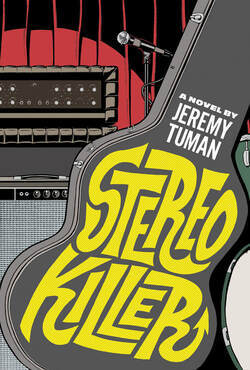 Review for Stereo Killer:
Review for Stereo Killer: ***** 5 Stars
Punk Rock Chaos Meets Genuine Humor
Stereo Killer is absolutely a book for music fans, particularly those of us who were ever into Punk Rock. Here you’ll meet Chet, a former punk now in the role of teacher to some less than enthused teenagers who have no idea about his past. It could easily be said that in many ways Chet himself is a bit less than enthused about it, though he can look back at that part of his life pretty readily and count himself among the more informed people who could be teaching his students. A little lost between both the mundane and everyday world of regular life and the punk life of his past, he’s still trying to find where he fits in his current life when Parker, his old bandmate calls him up and eggs him on to join him and a couple of others on a spontaneous tour of Europe born out of new interest for the old band. With some reticence, and the awareness that he had left for a reason, but no idea why he’d decided to, Chet starts to get ready for the middle-aged version of a garage punk tour de force-except what will he do about the life he’d just started to invest in? Will the woman he just connected with still be there when it’s over? Will HE still be there when it’s over?
This book is an absolute blast and more than worth your listening time! Paul Burt does an excellent job of conveying the scene, it’s characters, and the shifting changes of mood and character throughout, even doing a nice job with the musical bits. The book itself is just as complex and engaging as the punk rock scene it portrays, I’ll definitely be keeping an eye out for more books from Jeremy Tuman. If you’re looking for a general idea of the mood before listening or reading, think of things like SLC Punk! and High Fidelity, where both dramatic mood and humor are in play, all blended together with music and chaos.
Published on June 24, 2020 19:51
April 14, 2020
Night is Falling: A Taste of things to Come
Published on April 14, 2020 10:10
November 6, 2019
Long Overdue Updates
It's been a wild and crazy few years for me ( losing my mother this summer chief among them) and so updates have been a little inconsistent from me. I'm sorry for that and I hope it will be getting better now that I have a bit more breathing room between myself and some of the hectic parts of my personal life. So, that being said, here are a few of the things I have going on at the moment. First of all, if you haven't checked out The Hungry Season: Three Stories for Hungry Hearts, which came out recently, now would be a great time to see what you think! It contains Wendy Won't Go, Love Like Blood, and Cold Comfort and works as a great introduction to my writing as well as a nice little collection of what I like to think of as my Dark Mother stories. I'm currently working on the final edits for Other Dangers: This is How the World Ends (which is book two of Other Dangers) and working on my colaborative novel The Abyss Within with R. E Lyons with hopes to be doing some more work on both Jodie and Night is Falling in 2020.
On the audiobook front ( if you haven't seen them yet, I've got Eyes Like Blue Fire, Water Like Crimson Sorrow, Sacrum Umbra: the Gothic Tales of Amanda M. Lyons, Wendy Won't Go, and Other Dangers: Slipped Through out already on Audible) I have two more books currently in production, In Ventre Tuo: Tales of Gore and Madness from Paul Burt (who did a wonderful job with Sacrum Umbra and is doing a wonderful job with In Ventre Tuo as well ) and The Hungy Season from Chris Koprowski, both of these narrators do impeccable work and do my collections so much justice! I couldn't recommend them or Sara Jane Rose, J. Ross Wilson, or Andrew Reyes more, they've all been wonderful to work with and listen to! Look for both audio books this winter, and hopefully Cool Green Waters will be along soon enough too.
If you have any questions for me feel free to reach out and I'll get back to you as soon as I can.

On the audiobook front ( if you haven't seen them yet, I've got Eyes Like Blue Fire, Water Like Crimson Sorrow, Sacrum Umbra: the Gothic Tales of Amanda M. Lyons, Wendy Won't Go, and Other Dangers: Slipped Through out already on Audible) I have two more books currently in production, In Ventre Tuo: Tales of Gore and Madness from Paul Burt (who did a wonderful job with Sacrum Umbra and is doing a wonderful job with In Ventre Tuo as well ) and The Hungy Season from Chris Koprowski, both of these narrators do impeccable work and do my collections so much justice! I couldn't recommend them or Sara Jane Rose, J. Ross Wilson, or Andrew Reyes more, they've all been wonderful to work with and listen to! Look for both audio books this winter, and hopefully Cool Green Waters will be along soon enough too.
If you have any questions for me feel free to reach out and I'll get back to you as soon as I can.

Published on November 06, 2019 07:30
July 27, 2019
Check out these Audiobooks from Audible!
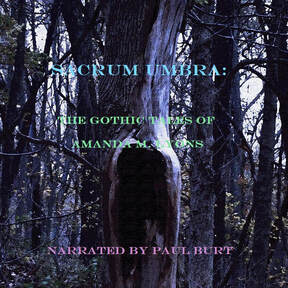 In the dark heart of our imagination, and the haunted corners our past there are places we fear to tread. As much as we might try to outrun them, as much as we might try to deny their truths, we are owned by their shape, molded by their claws. The story of our being, they form a Sacrum Umbra, a sacred shadow of improbable origin - our own dark heart.
In the dark heart of our imagination, and the haunted corners our past there are places we fear to tread. As much as we might try to outrun them, as much as we might try to deny their truths, we are owned by their shape, molded by their claws. The story of our being, they form a Sacrum Umbra, a sacred shadow of improbable origin - our own dark heart.
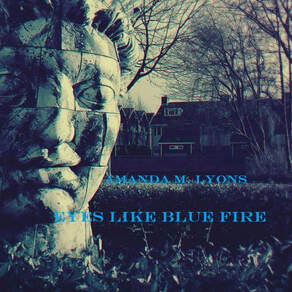 Katja has long spent her life buried in the pain and sorrow of her past, a vampire abandoned to her fate for over 300 years, she never expects to meet another who could hel
Katja has long spent her life buried in the pain and sorrow of her past, a vampire abandoned to her fate for over 300 years, she never expects to meet another who could help her reclaim her existence. Raven, a poet and fellow lost soul, could be the one to spur her on, but in order to have the future she has only begun to grasp, she must uncover the truth about her origins and the awful event which left her alone centuries before. If she cannot face her past and reclaim her strength, she will lose everything.
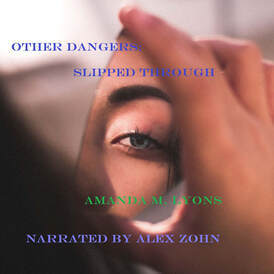 Henry is a man with trouble on his hands. Setting out for this weekend getaway wasn’t even his idea, and now he’s woken up from a terrible car crash to find himself in a strange place where nothing is as it seems. Now, his whole life has changed, and nothing he knew to be true seems to matter, not when the world is filled with horror and still other dangers waiting in the shadows.
Henry is a man with trouble on his hands. Setting out for this weekend getaway wasn’t even his idea, and now he’s woken up from a terrible car crash to find himself in a strange place where nothing is as it seems. Now, his whole life has changed, and nothing he knew to be true seems to matter, not when the world is filled with horror and still other dangers waiting in the shadows. Worse, his wife is hurt, and there’s only one woman who can help them get home, a woman who is more mystery than truth and holds the road map to a world without rules...a map that comes in the form of a book hidden in the depths of the backpack in her possession. A book that calls his name. The woman shows him she would do anything to keep it out of anyone else’s hands.
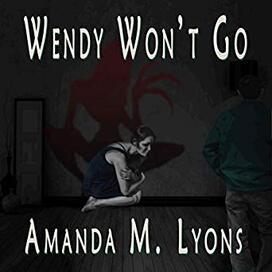 Billy and Sara are living a life of fear. Every day and every night since Sara was small they have been haunted by a terrible apparition. She is cold and she is cruel, strange and frightening. Her name is Wendy, and no matter where they go and no matter what they do, Wendy won't go.
Billy and Sara are living a life of fear. Every day and every night since Sara was small they have been haunted by a terrible apparition. She is cold and she is cruel, strange and frightening. Her name is Wendy, and no matter where they go and no matter what they do, Wendy won't go.
Published on July 27, 2019 15:15
July 16, 2019
You can get the very gothic audio book version of Sacrum Umbra Soon
Please check out this little promo for the Sacrum Umbra audio book put together by Paul Burt :)
Published on July 16, 2019 13:58
June 4, 2019
Sacrum Umbra, In Ventre Tuo, and The Lesser Apocrypha: Three New Short Horror Collections of My Work
Hey, have you been wondering what's up with me and my writing? Well there have been some changes and the news is good. It's been a busy few years and unfortunately my writing and releases took a hit for all the chaos, but now there's going to be a lot more room to breath and grow. I had to make some changes in my life, sort some aspects of things with my family, and leave my job as COO/Assignment Editor at J. Ellington Ashton (no ill will, it was just time to make some changes for myself) to arrive at this point, but things are already a lot more balanced and geared toward where I want to be going. I'll be continuing my freelance editing and promotional work for authors and the blogs I write over at Scorpion's Labyrinth while taking some more time for my writing and getting things out the door that I've been working on over the last five years or so, among them titles like Jodie, the next two Other Dangers books, a collaborative novel with my father called The Abyss Within, Night is Falling, and hopefully that fourth vampire novel Hollow Black Corners of the Soul for the Shades of Midnight series.
The other new information I have for you is that I've finally managed to get all of my short stories together and make a few themed collections so that it'll be easier for you to find the ones you like all in one place. I was very happy to find that there were so many to work with after all this time and that they had a nice little home in their given areas by the time I was done sorting and arranging them, I hope you'll enjoy them and consider giving them an honest review once you've gotten to work your way through them. In case you were wondering about my already released titles, rest assured you can still find my novels Eyes Like Blue Fire, Water Like Crimson Sorrow, Cool Green Waters, Other Dangers: Slipped Through, the mosaic novel Feral Hearts, the novella Wendy Won't Go, and numerous short stories and anthologies at J. Ellington Ashton. I'll keep you updated on where things are with new releases and hopefully you'll be seeing more new projects from me in the near future!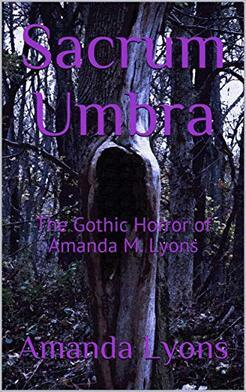
In the dark heart of our imagination, and the haunted corners our past there are places we fear to tread. As much as we might try to outrun them, as much as we might try to deny their truths, we are owned by their shape, molded by their claws. The story of our being, they form a Sacrum Umbra, a sacred shadow of improbable origin- our own dark heart.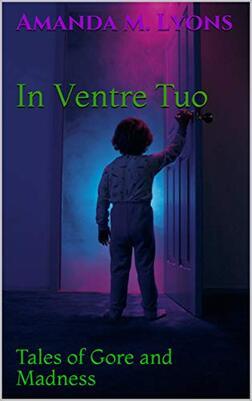
In Sacrum Umbra you were treated to tales from the shadows, the literary darkness that lives within all of us. Here you will find tales of another sort, the type you might find in the less wholesome end of the collective unconscious and the very depths of the gut. From stories of childhood gone horribly wrong to sex and madness with an impossible cost, this is where you'll find the more gruesome end of the spectrum.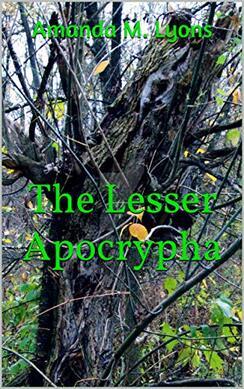
While Sacrum Umbra showed us the darkness of our own shadow, and In Ventre Tuo the guts of our inner monster, The Lesser Apocrypha is still another beast altogether. Meant to gather together the stranger stories, it contains some of the more surreal and ephemeral stories, the ones that just are without much rhyme or reason. Stories like an odd moment in the park, the strange child who won't stop haunting you, an alien invasion that gets very personal, an AI born of a lolcat, monsters in the woods, and a spell gone terribly wrong.
The other new information I have for you is that I've finally managed to get all of my short stories together and make a few themed collections so that it'll be easier for you to find the ones you like all in one place. I was very happy to find that there were so many to work with after all this time and that they had a nice little home in their given areas by the time I was done sorting and arranging them, I hope you'll enjoy them and consider giving them an honest review once you've gotten to work your way through them. In case you were wondering about my already released titles, rest assured you can still find my novels Eyes Like Blue Fire, Water Like Crimson Sorrow, Cool Green Waters, Other Dangers: Slipped Through, the mosaic novel Feral Hearts, the novella Wendy Won't Go, and numerous short stories and anthologies at J. Ellington Ashton. I'll keep you updated on where things are with new releases and hopefully you'll be seeing more new projects from me in the near future!

In the dark heart of our imagination, and the haunted corners our past there are places we fear to tread. As much as we might try to outrun them, as much as we might try to deny their truths, we are owned by their shape, molded by their claws. The story of our being, they form a Sacrum Umbra, a sacred shadow of improbable origin- our own dark heart.

In Sacrum Umbra you were treated to tales from the shadows, the literary darkness that lives within all of us. Here you will find tales of another sort, the type you might find in the less wholesome end of the collective unconscious and the very depths of the gut. From stories of childhood gone horribly wrong to sex and madness with an impossible cost, this is where you'll find the more gruesome end of the spectrum.

While Sacrum Umbra showed us the darkness of our own shadow, and In Ventre Tuo the guts of our inner monster, The Lesser Apocrypha is still another beast altogether. Meant to gather together the stranger stories, it contains some of the more surreal and ephemeral stories, the ones that just are without much rhyme or reason. Stories like an odd moment in the park, the strange child who won't stop haunting you, an alien invasion that gets very personal, an AI born of a lolcat, monsters in the woods, and a spell gone terribly wrong.
Published on June 04, 2019 05:11
February 9, 2019
The Transmutation of Trauma: Realizations of an Author in the Process of Healing
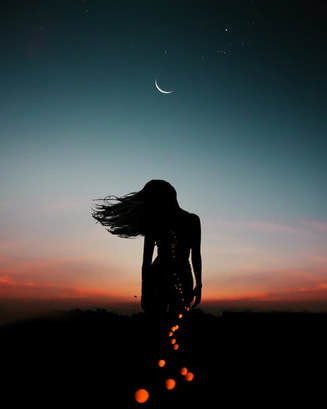
I'll be clear here and say that there are some ways I'm not certain this will be of interest to the casual reader, but I think it will be of interest to those interested in exploring the writing process and the psyche in relation to creative expression, they genuinely go hand in hand as creative expression is effectively the subconscious becoming conscious in order to be known. If this is not your thing, fret not, there will still be more of the more relaxed posts as well, dear reader.
I'll also note here that there are ways in which I discuss some of this process in a post on my psychologically centered self- exploration blog Scorpion's Labyrinth: A Blog About Being Present for anyone curious about these realizations ( I'll also crosspost this there for any readers there who might not know that this blog and it are written by the same person and find it interesting). You can find that post, A Terrible Beauty: The Dissociative Dance of the Healing Creator's Psyche, which is about the connection between dissociation and expression here :
https://scorpionslabyrinth.weebly.com...
If you like that post there are several others there as well, please feel free to follow me at both blogs. In many ways I think its long overdue that I make it clear these blogs are from the same individual and should be interpreted to be as intersected in their understanding as my own interest in, and connection with, both creative expression and the mind via psychology and sociology. I've kept them separate as a way to allow myself space to explore these differing worlds, but I should long ago have understood that for me these things are as intermingled as the whorls of my own mind. With that I want to be clear there may be far more blended posts like these here as I decompress and own who I am as opposed to dividing myself for polite consumption as I've done in the past.
There are a lot of ways in which I knew and had often discussed the fact that I was working through fears and others elements of the psyche with my writing in the past, but I don't think I truly understood it with any real depth until I finally had that little turn of the key when I was listening to my partner talk about some interesting insights the podcast The Wizard and the Bruiser had in relation to the comic book character Wolverine.
Let me give you a little context for this. Wolverine is a pretty widely known antihero of the superhero group The X-Men, a broken and mysterious man, he represents quite a lot of things for people, many of them based in an understanding of manhood that is contested between being potentially toxic masculinity and protective and directed aggressive behaviour justified by what is seen as a man standing for what is right. He has a healing factor that allows him to quickly recover from any damage to his body, he's even come back from total destruction of his brain, and also has an indestructible adamantium skeleton complete with retractable claws, all of it wielded by a man with an intense personality known for his ferocious anger and willingness to do a great deal of damage to others. As a result Wolverine is an important figure for those who grew up reading comics, particularly men who grew up or were teens in the 90s, for whom he was a major formative figure in their perception of self and what it is to fight for what you believe is right. In fact, I think for some women of the same generation he was likely a formative figure representing what they might encounter in a protective masculine partner regardless of how healthy or unhealthy that is.
The Wizard and the Bruiser is a pop culture podcast that deals with major themes of what they term "nerd culture" , so they'll pick a theme and then discuss their takes on why it's important. If you want to check them out, go here:
https://soundcloud.com/wizbru
On this particular episode a discussion point was brought up to the effect that Wolverine is actually something of a vampire, a being trapped in a cycle of rebirth that leaves them an outsider that is regenerated by a seemingly supernatural power but remains dependent on the rest of humanity to feel whole. Wolverine's vampirism is unique in that it makes him a living embodiment of the fact that those who experience trauma face a complex process by which the mind may not record a memory as it is intended to do and instead stores away a broken memory and/or an incomplete sense memory which dictates the way a person behaves in relation to a similar experience because the typical cognitive function has been rewritten to work from a trauma conscious directive tied into fight, flight, and freezing as a first response to preserve stability at all costs- even the loss of relationships and potential harm to the self. This is deeply discussed by the very insightful and well researched Bessel van der Kolk MD in his book The Body Keeps the Score: Brain, Mind, and Body in the Healing of Trauma which I highly recommend to anyone interested in the phenomena or who experienced trauma themselves.
Keep in mind I had heard all of this secondhand rather than listening in myself ( I struggle with listening to podcasts because there is no body language to follow as a grounding element of what's going on. It's one of my things, so Todd will often talk me through interesting episodes. ) so some of this discussion is also affected by Todd's own personal insight on their discussion and my own understanding of trauma and trauma psychology which has also informed how he speaks with me about related topics. All of that being said, here is the point of bringing up Wolverine: All of these elements intrigued me enough to think it would certainly make for an interesting take on vampires and other monsters in horror fiction, a way in which psychology could be introduced into the narrative in a very subconscious and nuanced way to make the premise its own animal- except it dawned on me that this is what I had been doing with my own fiction since I had begun to write!
Not only was this the case, I had been doing this so naturally that I didn't even get it until I began to consider these ideas in relation to the character Mateo from my vampire series Broken Shades, on whose personal narrative I had been blocked for years. I had begun to consider how I could write something based on the premise when I realized that Mateo was and had always been my Wolverine, a broken and damaged soul so entangled in his trauma that he can't differentiate it from who he is and so cannot define himself as a complete person either as a separate entity or as a conscious identity. Fundamentally broken, the victim of several incidents of mental, physical, emotional, even what one could consider soul violence, his memories- in effect his mind- and his body exist as nearly separate states, each new recovered form he has over the course of his life more and more detached from the one before, so much so that he has been a new and severed person at each point in his life- a terrible butterfly of pain processed through metamorphosis into a darker and darker version of himself. As we know him in Cool Green Waters he has become a monster who destroys in a physiological response to the nightmarish things he has lived through, a victimizer to Aremia, the vampire whose story begins in the same book, with whom he is locked in a devilish dance that plays on her own trauma- a living embodiment of codependency between an avoidant and anxious attachment pair in relationship.
Soon my mind slipped from Mateo to the villain of Eyes Like Blue Fire and Water Like Crimson Sorrow, Marie Gaston, who abused him in one of those periods and was herself the living embodiment of a narcissist both in her nature and the gifts she wielded like weapons, both to be a monster within and hold dominion over others via her ability to make zombie minions. From there I also thought of Anton, Trudeau, Delamorte, Raven, and Katja who is the central protagonist of the series and herself a figure through which I had always been seeking myself. All of them have certain gifts and self identifying elements that embody some form of mental illness- and then I got it. I hadn't only been talking about my fear and exploring little elements of struggle between people, I had been talking about so much more- my trauma, mental illness, and the cost of all of it had been written down in the shifting forms of my vampires.
Todd and I discussed it briefly as I worked through the process of understanding came out in the fits and starts of discussion I tend to have at such times and I sat with it a bit longer afterward. Between our two perspectives I soon realized I had cleared some blocks in relation to my writing, my connection to psychology, and the trauma I had personally experienced in the past. As the subject came to mind over the course of the last few days I soon began to see that this narrative was not only present in Broken Shades but also many of my other short stories such as Wendy Won't Go and All That Remains which have their own dialogues about trauma, loss, and the destructive nature of relationships which have been marred by trauma.
I had been having a subconscious dialogue with myself and my readers about what it was to be affected by trauma and mental illness. I was unknowingly having a narrative of how it all defined and informed everything we did in a way I did not consciously understand on virtually any level before I finally understood that I suffered from Complex PTSD back in the spring of 2016 and began a solo exploration through healing myself as a result in the ensuing years and months since.
I'm not sure I'm conveying the sheer enormity of that here quite as clearly as I felt it when it finally became that defined in my mind. Allow me to be clear, I knew I was in pain and that it limited me, I knew that well enough that I had been an occasional student of psychology and sociology via books from the likes of Mary Pipher MD and Brenda Rabkin among others. I was informed enough to understand that I likely had anxiety and been through post partum depression after the birth of my son and the loss of our first daughter, but I had not been aware I was talking myself through my trauma on this level all along- even as a teenager when the first two books were originally written and psychology was a vague thing I had only just begun to be aware of at all.
The resulting understanding has allowed me to realize quite a lot about what it is that I have been working to do with my writing and the path I intend to take over the course of the rest of my life on multiple levels. Having a clear understanding that I am not only working to tell a story - essentially my own and that of others- I am working to heal myself and others through written works that seek to seed a depth of understanding that allows healing to occur also allows me to see why it is that I also seek to be engaged with this same process through becoming a trauma counselor. Two potential careers that I struggled for a long while to choose between have become quite clearly the same path all along, allowing me to in effect become whole in my purpose.
Published on February 09, 2019 07:22
Inner Voices
Blog for Amanda M. Lyons. Expect lots of randomness and book updates.
- Amanda M. Lyons's profile
- 158 followers


